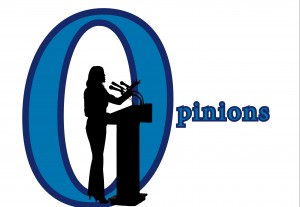People often say to college kids when we think something is hard “Just wait until you get out into the real world,” as if real world problems do not exist on college campuses. But there are real world problems on college campuses every day. Increasingly, one of these problems is drug abuse and more specifically, prescription drug abuse.
The Bill, Hillary & Chelsea Clinton Foundation is one organization choosing to fight this problem head-on. However, to fully understand how much this problem is affecting both “real-worlders” and college students, it is crucial to look at the data that the Clinton Foundation provides. First, prescription drug misuse is the third leading cause of accidental death in the U.S. This means that more people died last year because of drug overdoses, from both legal and illegal drugs, than car accidents. We have campaigns on campus advocating for people to be more cautious when driving. If more people die because of drug overdoses each year, shouldn’t we have some campaign on campus to tackle this issue?
Second, using the numbers from the previous statistic, every 19 minutes someone in the U.S. dies from drug overdose. Furthermore, the number of deaths from drug overdoses due to misusing prescription drugs now outnumbers the number of deaths from heroin and cocaine combined. We are always told of the dangers of drugs such as heroin and cocaine, but rarely are we warned of the immense implications that prescription drug misuse have on people in this country. In fact, over the last 20 years, the number of prescriptions stimulants used has risen from five million to 45 million per year, just one indication of this growing epidemic.
Third, college campuses are the most affected by these drugs. The use of drugs such as Vicodin, Oxycontin and Percocet increased by 343 percent between 1993 and 2005. Also, the use of stimulants such as Ritalin and Adderall has gone up by 92 percent in that same time frame. Overall, the National Survey on Drug Use and Health conducted through the Substance Abuse and Mental Health Services Administration found that in 2008, about one in four college students would take some sort of prescription drug for nonmedical purposes at least once in their life. To put this in perspective of DU, about 1390 undergraduate students are currently taking or have taken some prescription drug for nonmedical purposes.
Naturally, the state of Colorado has not escaped this tremendous national issue. The Colorado Attorney General’s Office reported that in 2008, 562 people died from prescription drug abuse compared to 173 with drunken driving-related accidents. Also, 49 percent of all drug overdoses in Colorado between 2003 and 2008 were from prescription drugs. Coloradans younger than 24 encompassed 20 percent of all entrants to Colorado drug treatment facilities for addictions to opioids, such as oxycodone and 29 percent of all admissions to treat addictions of stimulants like Adderall. I can only imagine that with the current rising trend, that these numbers would be higher for today.
The Clinton Foundation, through its Clinton Health Matters Initiative (CHMI), aims to help remedy this rampant problem. Through a multi-faceted approach which incorporates working with college campuses and social media sites, the CHMI will work to cut in half the number of young people between the ages of 18 and 26 from beginning the misuse of prescription drugs, which would save approximately 10,000 lives. I can only pray that the work of the Clinton Foundation and the CHMI will come to fruition and help save the lives of thousands of individuals and families. For more information about the Clinton Foundation or CHMI, go to http://www.clintonfoundation.org/our-work/clinton-health-matters-initiative/programs/addressing-prescription-drug-misuse.
On this campus, I have heard students both joke about and seriously tell their friends that they take drugs like Adderall to help them study. This problem exists at DU. It is a serious issue that people all over America face, but one that college students should particularly pay attention to and should work to address. When I have heard these students talking, it doesn’t seem like they fully understand the consequences of the drug misuse.
I understand that prescription drugs when used as directed by a medical doctor can be beneficial, but I have seen the result of prescription drug abuse in my family and I know the horror, anguish and heartbreak it can bring. No family should have to go through that pain of seeing a loved one suffer. With that in mind, I call for three things: I urge DU’s administration to speak about this issue more publicly and to work to solve it; I ask that anyone reading this that is going through a prescription drug problem to go seek help for yourself and your family; and finally, I hope that people will help support the Clinton Foundation in its courageous efforts to alleviate this problem.










